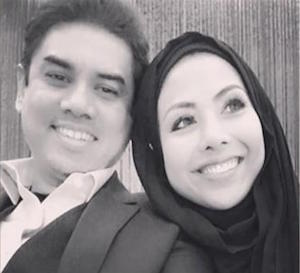When you speak ill of the dead
Eddie Hoo, The Heat Malaysia
Even a child knows that it wrong to speak ill of the dead. The boundaries of what can and can’t be said are clear cut. A child can also tell it is wrong to wish death or harm on others.
How then could a bunch of adults post nasty and callous comments on the death of Datuk Syed Alman Zain Syed Alwi, who was Deputy Prime Minister Datuk Seri Ahmad Zahid Hamidi’s son-in-law? Are they so blinded by hate that they could no longer tell right from wrong?
It is said that a little knowledge can be dangerous thing. Some of the commenters on Facebook put the unfortunate demise of this young man down to karma. “This is karma, just beginning. Inform your father to be a good person,” said Weng Seng.
Mok Kam Cheong wrote: “As a Buddhist … I Believe (in) ‘Karma’. This is what the ‘Dhamma’ teaching (sic). So I don’t do evils (sic) because I fear bad karma at the end of the day.”
Are they insinuating that the deceased deserved to die or his family members got their comeuppance? Such self-righteousness could only be due to arrogance and a shallow understanding of the teachings of the Buddha.
Remarks that are filled with sarcasm, hostility, coldness, and arrogance are usually from people who think that they are free from even the smallest of sin.
Since they are brave enough to put a name and a face to their nasty remarks, they must really believe in what they said. It only illustrates the amount of hatred they harbour against others.
It takes maturity to disagree with the politics of a person without hating him for it. Sadly, our society is not cultured enough to discern between disagreement and animosity. Otherwise, there wouldn’t be unnecessary rancour in the social media.
We don’t speak ill of the departed because the person is no longer around to counter what we have said. Besmirching the reputation of recently deceased people will certainly cause pain to the people’s living friends and family.
In Syed Alman’s case, what heinous act did he commit to deserve such crude remarks?
Our norms of civility preclude criticising anyone immediately after their death. Tact and diplomacy must always be shown to spare the feelings of family.
Since the dead can’t cry out for justice, it is the duty of the living to ensure that they don’t suffer any injustice.
We have to condemn these adults who are setting poor examples for the younger generations. They must apologise to the bereaved family for inflicting more hurt on them instead of consoling or giving them comforting words.
Then there were those who wished death on others. This shows how cold-hearted some Malaysians can be.
“I wish your father also goes like him. You too can go together. Goodbye,” Teh Hon Seng wrote.
The inability to feel sorry for another person’s suffering shows that we are losing touch with morality. Just where is our society’s moral compass?


